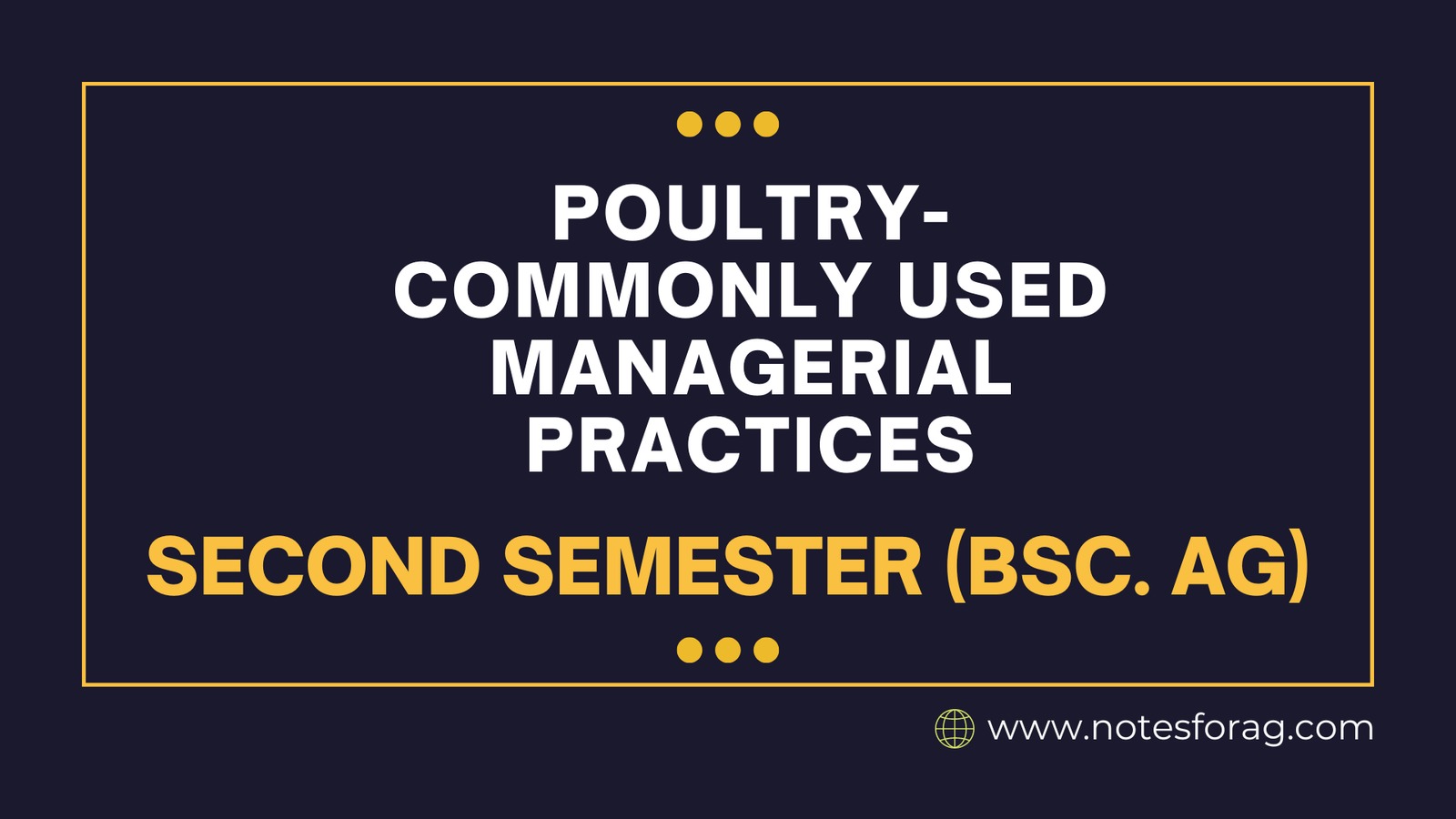Common managerial methods in poultry farming are aimed at improving the birds’ health, production, and wellbeing. These practices include balanced diet, clean and comfortable housing, biosecurity measures to minimize illness transmission, and proper ventilation and temperature control. Regular health monitoring, vaccination programs, and stress-reduction measures are all necessary. Effective management strives to foster growth, reduce illness risks, and promote overall well-being, resulting in increased productivity and profitability in this businesses.
Table of Contents
Introduction to Poultry Farming Management

Poultry farming, which dates back thousands of years, has evolved dramatically to become a staple of modern agriculture. Small flocks were first managed for domestic consumption, but as demand for poultry products increased, more sophisticated and large-scale enterprises emerged. Today, poultry farming includes raising several sorts of birds, principally chickens, for meat (broilers) and eggs (layers). To achieve optimal health and production, each category has its own set of management procedures.
Effective poultry farming management is critical for ensuring the flock’s health and productivity. This includes strategic planning and routine practices like feeding, housing, disease control, and growth rate monitoring. Proper management not only improves the quality and quantity of chicken products, but it also helps to ensure the farm’s sustainability and economic viability.
Commonly used managerial practices
Commonly used managerial practices in poultry farming are essential for maintaining the health, productivity, and welfare of the birds. These practices include:
1. Nutrition
In poultry farming, nutrition and feeding practices play a pivotal role in ensuring the health and productivity of the flock. The dietary needs of poultry vary at different growth stages, necessitating the use of specific feeds such as starter, grower, and finisher feeds.
- Balanced Diet: Provide a food that is appropriate for the type and age of fowl, including necessary proteins, vitamins, and minerals.
- Clean water: Maintain consistent availability to clean, fresh water to promote growth and wellness.
2. Housing
Poultry housing systems play a critical role in maintaining the health and productivity of poultry flocks. The primary types include free-range, cage, and deep litter systems, each with its unique advantages and challenges.
- Proper ventilation: Maintain appropriate air quality by providing adequate ventilation to minimize ammonia levels and prevent respiratory problems.
- Temperature Control: To avoid heat or cold stress, maintain an ideal temperature range in the home environment.
- Space: Provide enough space for each bird to alleviate stress and prevent overcrowding.
3. Biosecurity
Biosecurity measures play a pivotal role in maintaining flock health. Implementing quarantine procedures for new birds helps prevent the introduction of diseases from external sources.
- Disease Prevention: To avoid the entry and spread of infections, implement strong biosecurity measures such as limiting access to chicken houses and sanitizing the equipment.
- Vaccination programs: To prevent against common poultry diseases, follow the prescribed immunization schedules.
4. Health Monitoring
Effective health management practices are critical in poultry farming to prevent diseases and ensure the overall well-being of the flock. A well-structured vaccination schedule is fundamental, targeting common diseases such as avian influenza and Newcastle disease.
- Regular Check-Ups: Birds should be monitored on a regular basis for symptoms of illness or suffering.
- Parasite Control: Implement frequent parasite control procedures to avoid infestations.
5. Hygiene
- Clean Environment: Maintain cleanliness in poultry buildings by frequently collecting waste and disinfecting the space.
- Litter Management: Maintain adequate litter management to keep the bedding dry and disease free.
6. Stress Reduction:
- Handling: Handle birds gently to reduce stress during handling and transportation.
- Lighting: Utilize suitable lighting schedules to promote growth and reproductive health.
7. Record Keeping:
Detailed records: Keep thorough records of feed consumption, growth rates, health status, and production levels to track performance and make educated management decisions.
Frequently Asked Question(FAQ)
What is the importance of a balanced diet in poultry farming?
A well-balanced meal provides all of the nutrients that chickens require, such as proteins, vitamins, and minerals, for development, health, and production.
Why is record keeping important in poultry farming?
Detailed records assist farmers track feed intake, growth rates, health issues, and production levels, allowing them to make more informed decisions, discover problems earlier, and improve overall management methods.
Related Articles

